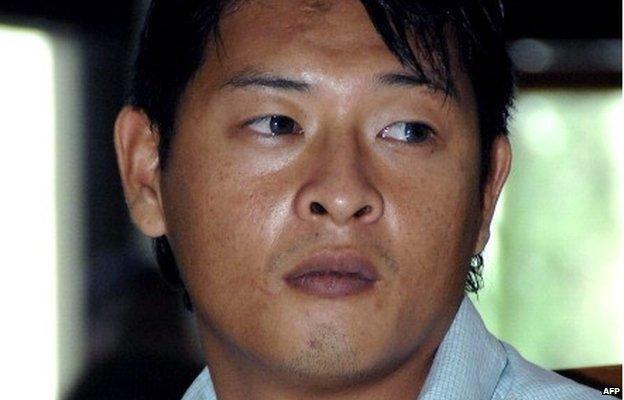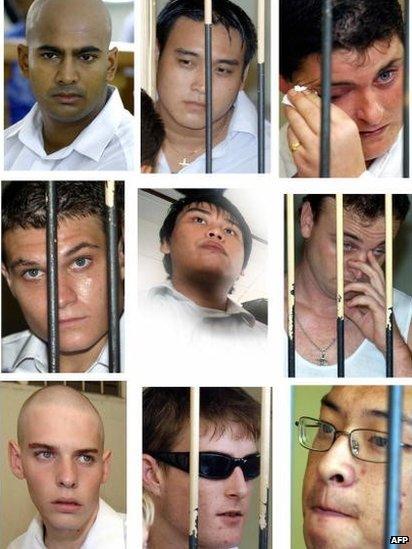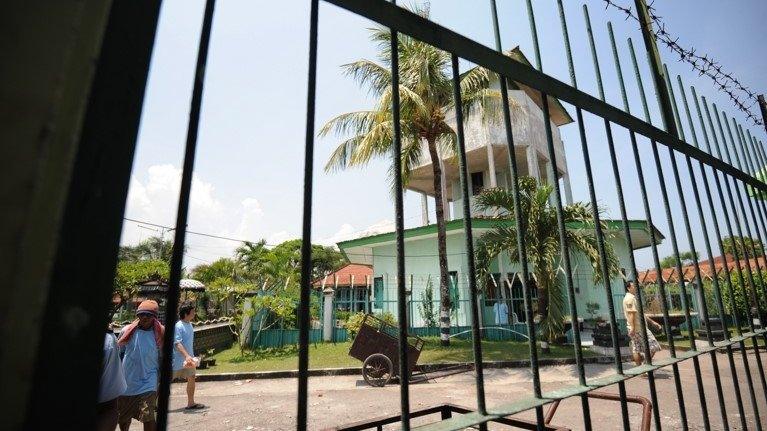'Bali Nine' ringleader Andrew Chan denied clemency in Indonesia
- Published

Chan and eight other Australians caught for smuggling were collectively dubbed the "Bali Nine"
Andrew Chan, a ringleader for Australia's drug-smuggling "Bali Nine", has had his clemency plea rejected, a local court has announced.
He and eight other Australians were arrested in Bali in 2005 with more than 18lb (8.3kg) of heroin.
Chan and Myuran Sukumaran were found to be the leaders of the group and sentenced to death.
Both have now exhausted all avenues of appeal. Australia has urged Indonesia not to go ahead with the executions.
Indonesia has some of the strictest drug trafficking laws in the world. Last week, it executed six people, including five foreign nationals, for drug offences.
New President Joko Widodo has said that he will show no mercy towards drug criminals because they have ruined the lives of so many.

A court found Sukumaran (top left) and Chan (bottom right) to be the ringleaders
Rehabilitated
The district court in Bali's capital, Denpasar, said it had received a letter from the president's office rejecting the appeal for clemency for Andrew Chan.
A spokesman confirmed to the BBC that the decision was made on 17 January.
Earlier this month Sukumaran also had his clemency appeal turned down. No date has been given for the execution by firing squad.
Officials said they were waiting for the decision on Chan because the two men had committed then same crime and so would be executed together.
The other seven members of the "Bali Nine" are currently serving either life or 20 years in prison.
An unofficial moratorium on executions in Indonesia ended in 2013. No executions were carried out in 2014, but Mr Widodo has taken a tough stance on the issue since taking power.
Australia opposes the death penalty and its government has repeatedly campaigned for its citizens.
Representatives for the two Australians have argued that they are changed characters and have worked hard to rehabilitate themselves in prison.
- Published8 January 2015

- Published16 January 2015
